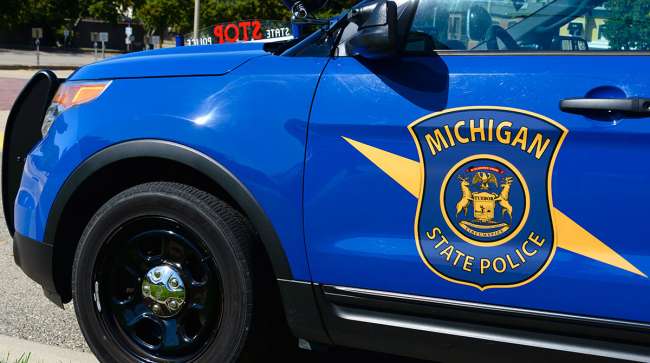Staff Reporter
Michigan State Police Experiment With ELD Road Safety Messages

[Stay on top of transportation news: Get TTNews in your inbox.]
Michigan State Police have launched an electronic messaging experiment enlisting truckers to help avoid accidents by receiving short road safety alerts sent to their existing electronic logging devices in commercial vehicles.
Patrick Morris, motor carrier inspector in the state police’s commercial vehicle enforcement division, told Transport Topics that making professional drivers more aware of roadway emergencies, bad weather conditions and other important situations helps all drivers avoid accidents.
“Putting messages out is a good thing. There’s no way to lose on that,” Morris said. “We want to let people know about road safety situations. Our goal is to never write a ticket.”
The campaign for truckers began Aug. 28 to coincide with Labor Day holiday traffic because the roads would have a higher volume of passenger vehicles mixed with commercial vehicles. More vehicles gave state police a wider range of metrics as a starting point to use when gauging system effectiveness in accident prevention.
News Release - State Police Launch 'Electronic' Safety Campaign for Commercial Drivershttps://t.co/0bHuKffHWi — Michigan State Police (@MichStatePolice) August 28, 2024
“Safer commercial drivers make for safer roadways for all roadway users,” Morris said. “Coupled with continued education and enforcement, digital messaging direct to commercial drivers is another way our motor carrier officers are working to increase traffic safety and reduce traffic crashes and injuries on Michigan roads.”
All interstate truckers are required by federal law to have an ELD to record their hours of service. Michigan’s new messaging campaign relies on Drivewyze Inc.’s Smart Roadways service connected to trucks that will send notifications about road hazards and/or enforcement operations.
Transtex CEO Mathieu Boivin discusses the environmental sustainability of auxiliary power units. Tune in above or by going to RoadSigns.ttnews.com.
Michigan State Police now can target up to 300 zones (established by latitude and longitude) to deploy alerts statewide. A single zone can be in a 20-mile area or larger. These short messages of no more than 25 characters can be geotargeted to a specific area and appear in large letters on a bright yellow background on a truck driver’s dash-mounted ELD.
“The messages are deliberately short. They come across quickly. We don’t want to create a distraction for drivers,” Morris noted, adding the campaign “could be a game changer” in furthering the use of technology to improve roadway safety in Michigan.
To initiate an alert, state police send an email to Drivewyze identifying a zone, date and length of time for safety messages. Alerts can be sent out immediately for emergencies and over predefined time periods.
Want more news? Listen to today's daily briefing above or go here for more info
Another advantage besides ease is enabling police to send a message to an area without patrols having to be there. Alerts also can be paired with saturated law enforcement patrols. The CVED’s staff includes 115 motor carrier officers, 10 investigators and four safety auditors. The division operates 14 weigh scale facilities and conducts road patrols for enforcement of regulations on commercial vehicles.
“In the future, we plan to use this messaging tool before heavy driving holidays or when there are particular driving hazards we would like drivers to be aware of,” Morris added.
Police are now identifying high-crash corridors as areas for messaging in the hope that truck drivers will be aware of roadway factors and possibly alter their behavior (such as slowing down) when entering dangerous areas.
Morris said the state signed a one-year, $85,000 contract with Drivewyze to fund the experiment. When that term is over, state police will review performance metrics to determine if the contract should be renewed by analyzing driving behaviors before and after alerts were displayed to truckers.




